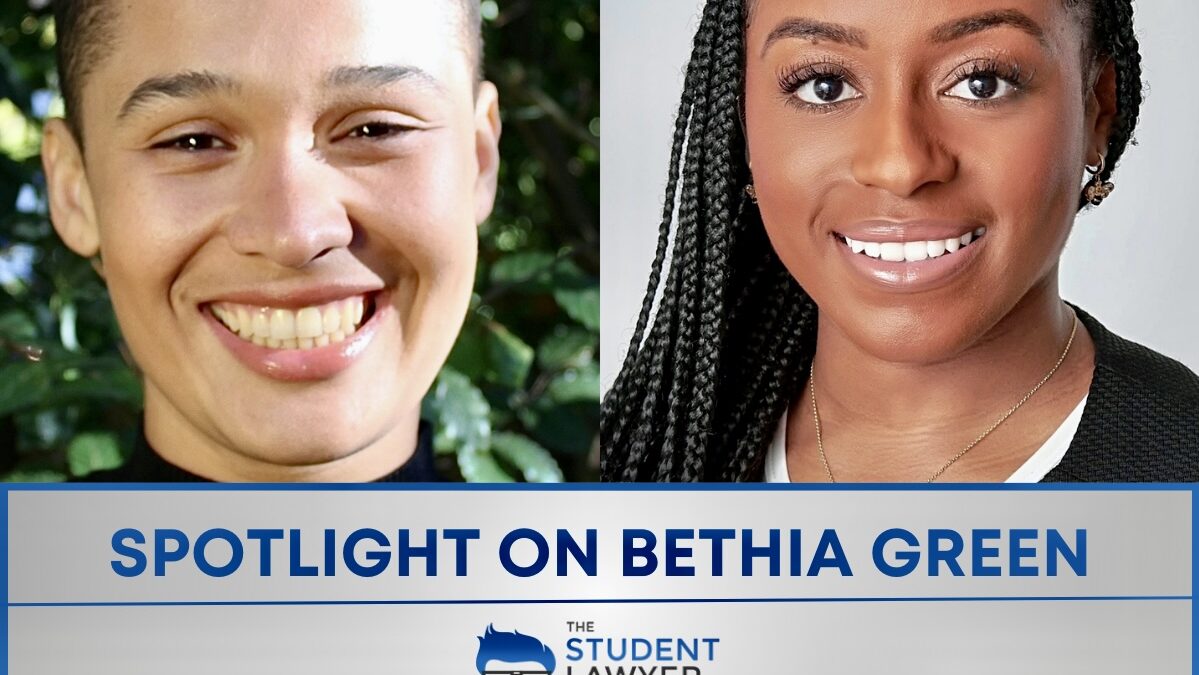
Commercial Awareness Update – W/C 19th February 2024
February 19, 2024
The importance of transforming the legal landscape and society
February 19, 2024By Christianah Omobosola Babajide.
Reading time: eight minutes.
In this article, Christianah Omobosola Babajide, Editor of Diversity & Inclusion, sits down with Bethia Green, a trialblazer who shares her journey from the legal profession to the establishment of her own diversity and inclusion agency.
Hi Bethia! Could you please start by telling us a little bit about yourself and your background up until now?
I was born in North-West London and moved to the South-West of England when I was eight. I stayed there until university. It was a big cultural adjustment at first, moving from somewhere as diverse as London to a small, rural village with VERY little diversity. Growing up, it was just my little sister, my mother, and me. I had a difficult upbringing though, and when I was 17 (about a month before my A Levels) I actually ended up leaving home and sofa-surfing with friends until I settled back in London. There isn’t a lot of awareness around estrangement, but it’s much more common than people think and it’s important that it becomes less of a taboo.
Transitioning from a trainee solicitor at Mishcon de Reya to launching Decide is a significant change – what inspired this change?
My drive to become a lawyer was rooted in my belief in the principles of fairness and justice. I was a precocious child, and I didn’t hesitate to call out injustices. Law seemed like a great career choice, but it didn’t fulfil me to the extent I hoped it would. However, my passion for diversity and inclusion led me to take a leap and start my own agency. I felt, and still feel, that my work now truly centres fairness and justice, and for me personally, that’s priceless (and worth the salary cut that it’s accompanied!). The less inspiring answer though is that I needed the financial resources and security to be able to launch my own business and once I had that I felt able to pursue my dreams.
What’s the story behind the name: “Decide”?
There isn’t too much of a story, to be honest. I wanted something punchy and ‘decide’ was short, simple, and self-explanatory. For organisations, committing to EDI is a decision, and as a society, we need to decide to be better. I also liked how it incorporates the letters EDI so many times, but I don’t think most people even notice that!
Having experienced the corporate world as a mixed-race woman, how have your experiences influenced your approach to diversity and inclusion strategies at Decide?
My identity makes me a super minority in the corporate world (yay!). I use that as one of my strengths. I understand diversity from a lot of different perspectives which is incredibly helpful, but I also know the limits of my knowledge. I work hard to give people the opportunity to speak for themselves because I know how frustrating it is to be misrepresented. My approach to diversity and inclusion is rooted in grassroots, employee/community-led strategies that give everyone the opportunity to contribute to change. I want to hear from people and help make their voices heard. That’s incredibly important to be and I think rooted in my identity and experience of having my voice misheard, overlooked, ignored, or even silenced.
In your journey from a rural state school to a top law firm, what challenges did you encounter that shaped your commitment to creating a more inclusive society?
Stereotypes. We all make assumptions about people that can be incredibly damaging. Class divisions entrench stereotypes. I arrived at university thinking I’d find people like me, but I felt more out of place than ever. I made a lot of assumptions about people, and I’m sure my peers made assumptions about me. In the workplace, things shifted. People assume you’re from money and have a certain level of privilege. It’s difficult to be yourself and exhausting to constantly have to dilute yourself to fit in. I was lucky to be at a fairly progressive, inclusive firm, but stereotypes were still there. I believe it is so important we embrace multiculturalism and diversity because organic integration is the single best method of dismantling harmful stereotypes and normalising diversity.
Your focus at Decide is on long-term frameworks targeting retention and progression. Could you elaborate on how your strategies differ from conventional approaches?
Currently, we do a disservice to diverse talent by ushering them into organisations under false pretences. At decide. we focus on building genuine EDI infrastructure within organisations. Often starting small with an initiative or piece of research, our goal is to create workspaces where you feel comfortable bringing as much of yourself to work as you desire. Historically, organisations have focused on recruitment to provide diversity, hoping things internally will then solve themselves. My experience is that this is incredibly irresponsible and ineffective, and often leads to cultural harm. Minority hires can be treated as being tokenistic by the majority and end up entering a workspace that is incredibly hostile to diversity. I think it is important to invest more in changing an organisation internally, through better induction processes for minorities, mandatory training and education for all, and clear support mechanisms for minorities that lead to genuine change. I also believe this is the most financially sensible approach, as it leads to a measurable reduction in conflict and HR resources that are associated with a high turnover.
How do you navigate and address the unique challenges faced by individuals at the intersections of different identities?
My approach is people-led, so I address unique challenges by speaking and consulting with the individuals facing the challenges. I strongly believe that often the answers to an organisation’s problems lie with their employees. The task I undertake is creating an environment where employees feel both safe to speak out, and confident they will be listened to. My appreciation and understanding of intersectionality help me ensure the spaces I work in are accessible and safe for everyone.
As a D&I specialist, what role do you believe organisations play in turning ideals of equality, diversity, and inclusion into tangible actions?
Without proactive leadership, change will occur at a glacial pace. 2020 put EDI on everyone’s radar, but over the next 5-10 years it will be increasingly obvious which organisations have been proactive and effectively invested in EDI. That said, I think it’s a lot easier for larger organisations to throw money at EDI, and I believe that EDI consulting and advice should be available to all businesses regardless of size. For that reason, I offer reduced fees to smaller organisations that demonstrate a real commitment to EDI.
What do you see as the most pressing challenges today in the legal profession?
Diverse senior leadership. Entry-level issues persist, but the real challenge within law for minorities, particularly those who are ethnic minorities, LGBT+, or disabled, is the lack of senior and managing partners who look like them. Within the legal sector, power and influence are still very much held by privileged white men. To change that, we need to ensure we are invested in sponsorship for young, upcoming talent. They need to see a realistic pathway to decision-making positions and that is reliant on allyship from current senior leaders. It also requires a long-term approach to EDI so that these future leaders will take over a firm in 15-20 years that reflects our wider society.
Considering your goal to make workplaces accessible for everyone, can you share a success story of yours?
A lot of my work is long-term, and we’ve only recently got going, so that’s a very difficult question to answer. However, when I was at Mishcon, I suggested a restructuring of the firm’s mentoring programmes to be more intersectional. After a period of consultations, it was agreed this would be a beneficial step to take and I believe it has now been implemented. This is in many ways a small win, but it was a simple change that probably hadn’t been suggested because of the lack of employees with multi-variant identities who struggled to find a mentor who had experienced the challenges they faced. Speaking up as a minority can be daunting, but there is no feeling as rewarding as solving a problem so that the next person doesn’t have to feel the way I did.
What advice do you have for organisations looking to enhance their diversity and inclusion initiatives?
Follow @decide_edi and get in touch!
Quick fire questions:
- Cats or dogs?
Both.
- If you could have dinner with any historical figure, who would it be?
Harriet Tubman.





